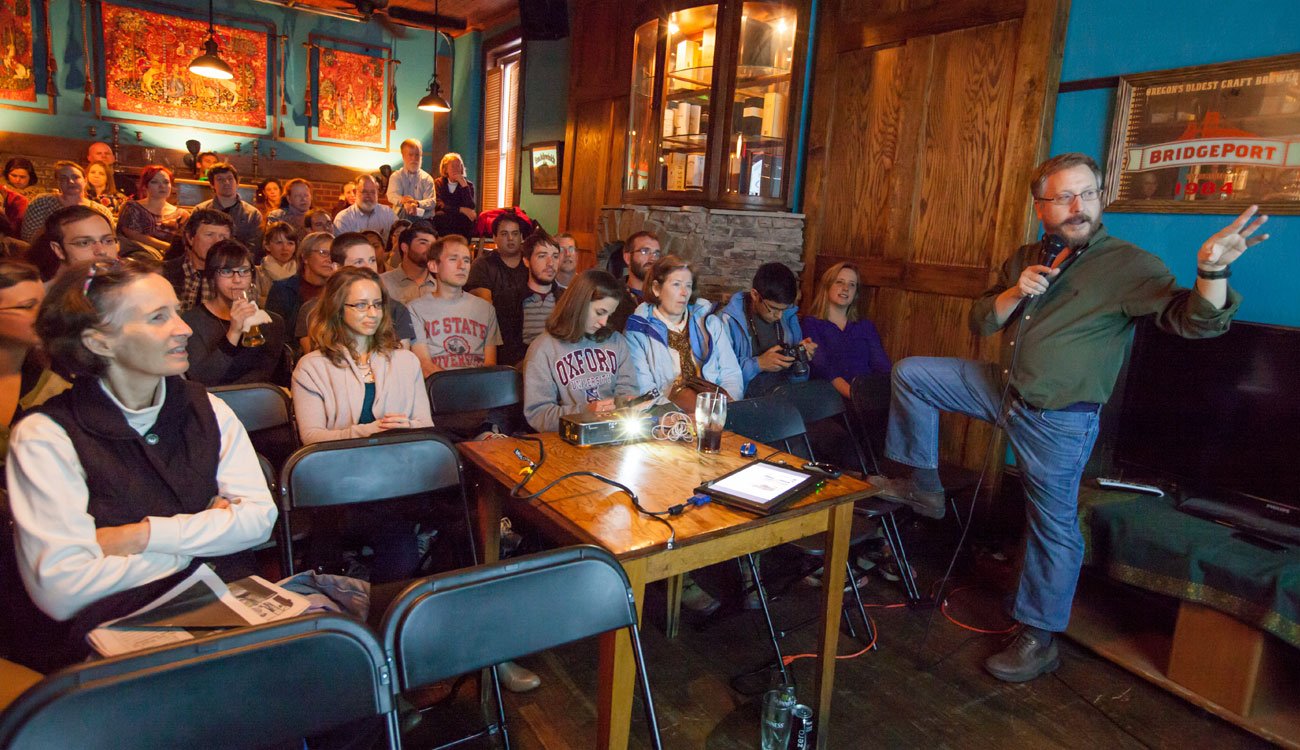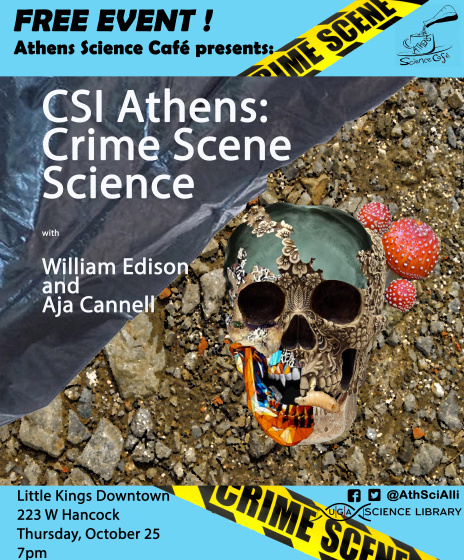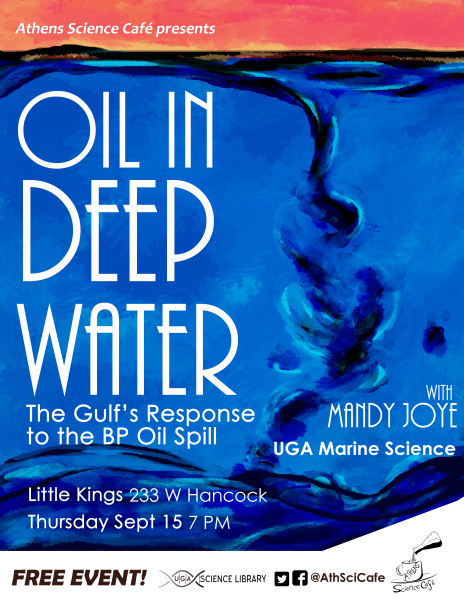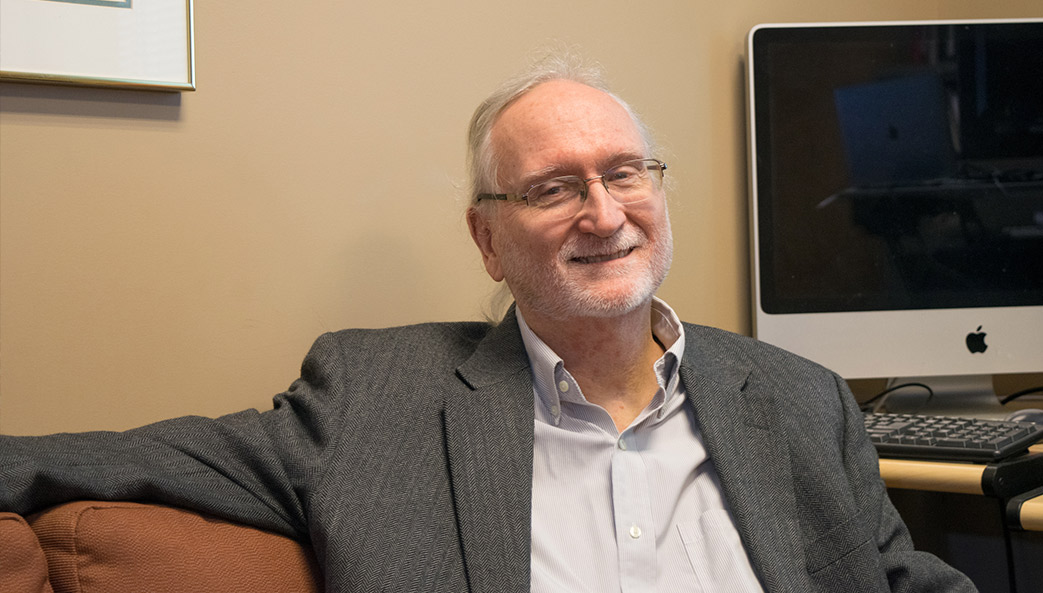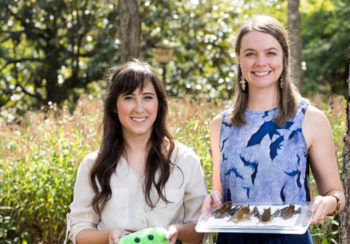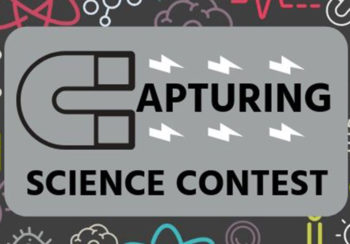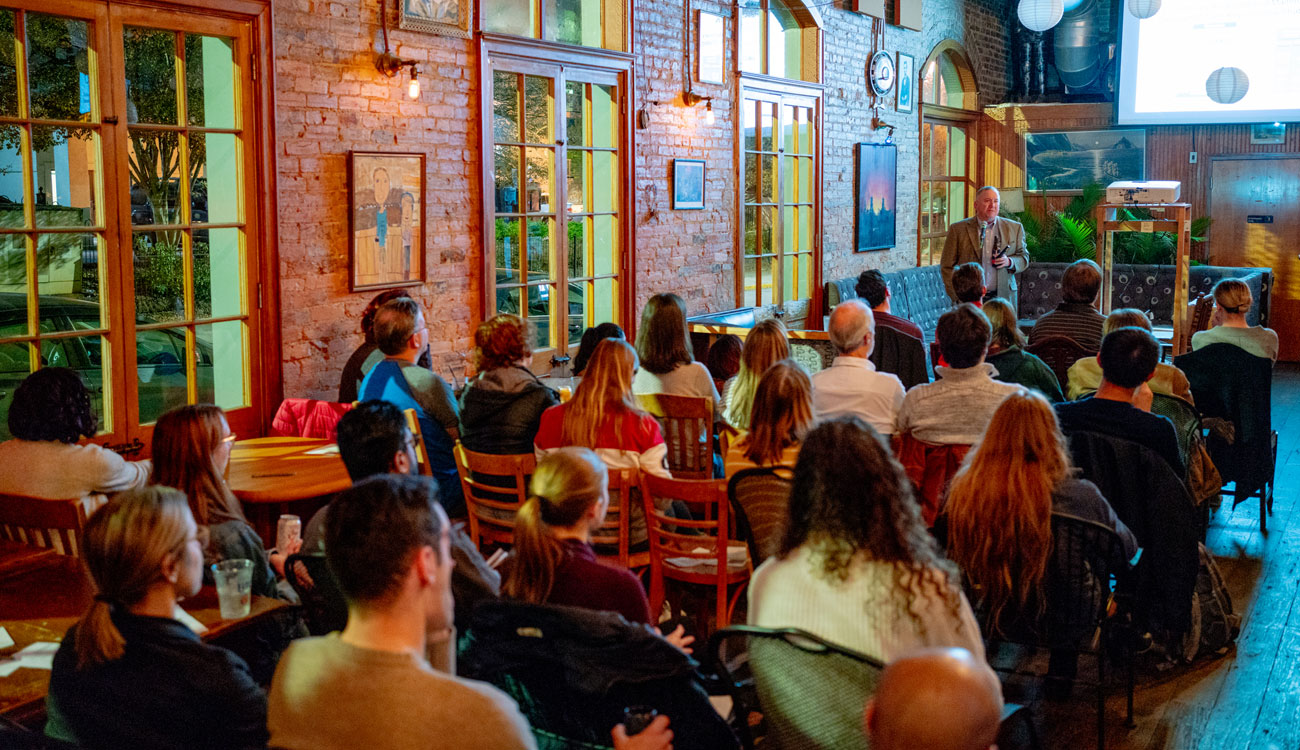
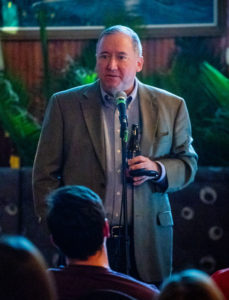
Breast milk includes a protein with anti-cancer applications, Mills explains, and its third-largest component is fiber. Although infants can’t digest it, the fiber plays an important role in colonizing their gut with beneficial bacteria, especially Bifidobacterium, which often appears on the label of probiotic supplements. Somewhat surprisingly, Mills says infants in developing or rural areas have a higher abundance of “good” gut bacteria—and, thus, healthier gut microbiome—than their peers in North America and Europe, despite the higher living standards in the latter two regions.
“Are we losing the key bacteria that are meant to seed our children?” Mills asks the audience. “What are we doing to our children, or to ourselves, so that we are not passing it on to our children?”
After the talk, people have questions—along with a healthy appreciation for what they learned.
“There’s a lot more science behind breast milk than we thought,” says Maria Letourneau, a UGA graduate student in marine sciences.
This kind of exchange is why the Athens Science Café was established: to connect the Athens community with science by facilitating a two-way dialogue between scientists and citizens.
Learning and libations
In 2013, Rishi Masalia was sitting at a round table in the Atlanta Botanical Garden, listening to an evening science talk. As a UGA graduate student, he was used to lectures, but not in such an informal setting.
“Having cocktails and chatting about science was a cool concept in and of itself, but specialty, science-themed cocktails?” he said. “Count me in.”
Prior to that night, Masalia and a colleague had discussed holding similar events in Athens. Masalia felt the 50-minute talk did not leave enough time for audience questions. In addition, attendees had to pay for both parking and admission to the Botanical Garden, which may have limited the audience.
“We wanted the Science Café to be a place where people could grab a beer, listen to a non-dense science lecture, and ask questions directly to an expert—all with no cover charge,” he said.
Soon after, the Athens Science Café was born, with its first event held in early 2014. The monthly format included a 40-minute talk, followed by 10 minutes of Q&A, with the entire event being live-streamed on Facebook.
“We wanted the Science Café to be a place where people could grab a beer, listen to a non-dense science lecture, and ask questions directly to an expert—all with no cover charge.”
– Rishi Masalia
Rishi Masalia, who graduated in 2018, is co-founder of the Athens Science Café and the Athens Science Observer, a website that gives graduate students the opportunity to communicate with the public on scientific topics. (Photo by Nancy Evelyn)
“We started out as a group of science nerds who liked talking about science,” Masalia said. “Currently, the Café is coming up on its 7th birthday, and it’s taken on a life of its own, continuously evolving with each new group of student leaders.”
The Café initially received financial support from UGA through the President’s Venture Fund. Last year, Jason Wallace, assistant professor in the Department of Crop and Soil Sciences, wrote in funding for the Athens Science Café as part of a grant proposal. Thanks to this extra support, the Café can now invite speakers from across the country, such as Mills.
“Government agencies want their research to have an impact on society, and the Athens Science Café helps move cool research out of the lab and into an everyday setting,” Wallace said.
However, Café speakers were usually well-established professionals, and there was a growing desire for current students to themselves engage in science communication, according to Masalia. He and a group of graduate students—all involved in the Café at the time—wanted to practice science communication instead of just facilitating talks. After individually writing blogs and exchanging feedback, Masalia and two of his colleagues, John Spiekerman and Jeff Cannon, got together and hatched the idea of formally launching a blog-type website.
Flyers for the Athens Science Café, which held its first event in 2014 and has covered a variety of topics over the years.
Cannon emailed all UGA science departments with a description of the idea and a call to action. The response was overwhelming.
“We got responses pretty quickly, and we actually delayed starting so that Jeff, John and I could put together some writing structures to handle that many new writers and reviewers,” Masalia said.
Now the Athens Science Café is part of a bigger entity called the Athens Science Alliance, which also includes the Athens Science Observer, a website where students write and post articles on various scientific topics. The two organizations were merged under the umbrella of the Alliance to unite their resources and branding efforts.
“The Observer was born out of a desire for training and experiential learning,” Masalia said.
Observer writers have covered such topics as antibiotic resistance, nanotechnology, the lack of maternity care in STEM fields, privacy implications of personal genetic data, the science behind vampires and a series of posts on Christmas myths.
As the two initially independent branches merged into the Athens Science Alliance, a liaison was elected to coordinate between the Observer and the Café. Gregory Evans, writer and associate editor for the Observer (as well as a graduate student in plant biology), tries to facilitate better communication between the two branches.
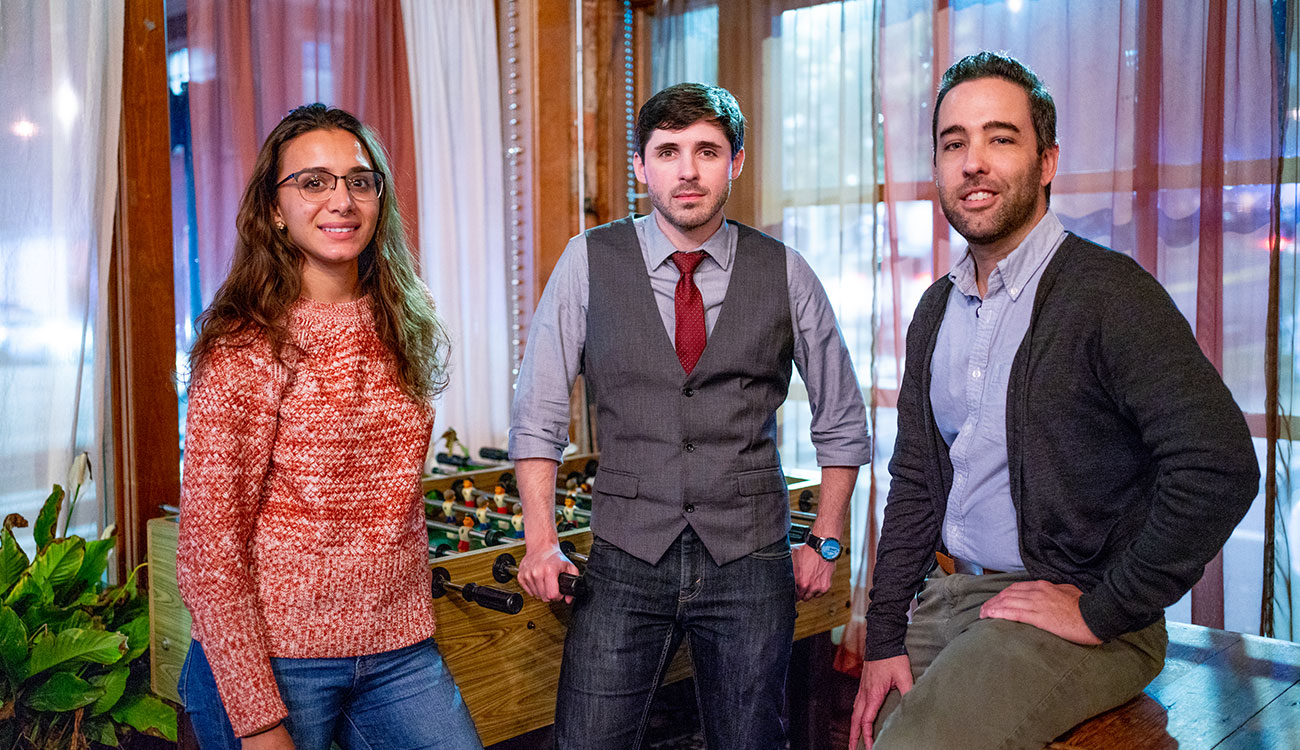
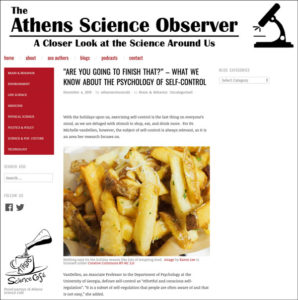
While the two branches of the Alliance provide free science outreach, running the organizations comes with financial obligations: The Café pays fees to reserve space at the venue, while the Observer has website maintenance expenses. Prior to their merging, each branch managed their finances independently. Michelle Ziadie, former editor-in-chief of the Observer, said the website’s expenses usually come out of the students’ pockets, while on the Café side, monthly “Percentage Nights” at the downtown Ben and Jerry’s help them generate funds.
On the second Wednesday of every month, the Café sets up experiments outside Ben and Jerry’s, which gives the organization a portion of proceeds. Elizabeth Watts, the Café fundraising coordinator and a graduate student in biochemistry and molecular biology, said the experiments vary from very simple—like making smoke by adding water to dry ice—to more complex and interactive, like making designs with ingredients like milk, food coloring and laundry detergents.
On the Observer side, Ziadie, a graduate student in genetics, attributes the site’s growth to increased interest in pursuing careers in science communication, as well as Observer recruitment efforts. With extra funding, she envisions holding training workshops for writers.
“Many students want to have the experience of translating their science for a broader audience,” she said. “They want to be able to communicate the important scientific ideas that may also have social or political consequences.”
Malaria and mosquitos
David Peterson, an associate professor of infectious diseases at UGA, believes a speaker should know their audience and find ways to connect with them. He found his connection through humorous, on-topic questions.
“What’s the medieval Italian term for ‘bad air’?”
“In 1786, what illness caused George Washington to be treated with quinine?”
“What provided a ready excuse for the colonial British to drink gin and tonic?”
The answer to all those questions, according to Peterson, is malaria.
During the September 2019 Café, titled “Malaria: From Miasma to Elimination”, Peterson covered the history of malaria outbreaks and the challenges facing vaccine development, partly due to the complex nature of the parasite. While sipping a gin and tonic himself, Peterson warned the audience against relying on tonic water—which contains small amounts of quinine—for malaria prevention.
“If you think you can drink enough gin and tonic to protect yourself from malaria, you can’t,” he said. “With the proper ratios, that would be five liters of gin.”
At the end of his talk, Peterson answered questions from the audience, most of which involve the risks of using genetic engineering on the mosquitoes that carry and spread malaria.
“I really enjoyed the audience questions,” he said. “It was clear that many in attendance had been reading about malaria.”
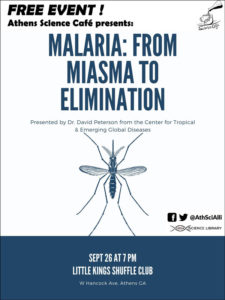
His talk drew a crowd of more than 30, with a mix of UGA students and Athens residents. Richard Field, the current Café program director and a graduate student in genetics, talks about other past events, including one given by the owners of Kindercore Vinyl that discussed vinyl record production, and another about beer-brewing technology, given by employees of Creature Comforts, a local brewery. Field attributes the success of these two Café talks to the “real-world” nature of the topics.
To help promote upcoming Cafés, the Observer introduces the talks through articles on the Café’s topic. This was done for both Mills’ and Peterson’s talks, among others.
The Café’s venue, Little Kings Shuffle Club is an important partner to the Café’s success. The arrangement to host the Science Café was mediated through Nick Batora, a Ph.D. student in genetics who was a regular customer of Little Kings and director of the Café at the time.
“We host these events because they bring people in, and we like the people running the Café,” said Terri Silva, a manager at Little Kings. “We always create a special cocktail for the Café based on the subject of the talk.”
The Café audience seems to always leave with new, sometimes surprising information. Staci Belcher, a dietician and avid Café attendee, was surprised to learn from Mills that breast milk contains fiber. Others were surprised by the different useful components of breast milk.
“The science of breast milk is a really important topic that we don’t often discuss,” said Denise Fahey, a graduate student in biochemistry and molecular biology.
An education in communication
While graduate students are generally trained to present to their peers, Simeone Lim-Hing, an associate editor for the Observer and graduate student in plant biology, had another kind of audience in mind. Being the first member of her family to pursue science, she had personal reasons to practice writing in accessible language.
“My grandparents, who do not speak English as a first language, can read my articles and have a grasp on my science,” she said. Lim-Hing also credited her experience with the Observer with making her a better teaching assistant by helping her explain course material to her students more effectively.
Observer writers also acknowledge certain challenges. Maria Flowers, a senior majoring in biochemistry, is in the process of writing her first article. To her, the biggest challenge is finding a balance between simplifying complex ideas and avoiding wrong interpretation of data.
“You want the reader to walk away both educated about the topic and inspired to learn more about it,” Flowers said.
In April 2014, UGA professor John Knox delivered a Café talk titled “Winds of Change: Using Social Media to Study the Weather.” (Photo by Nancy Evelyn)
Beyond connecting the UGA and Athens communities, Wallace said science outreach is important for graduate students on a professional level. Tiffany Lohwater, chief communications officer for the American Association for the Advancement of Science, agrees. Good communication skills, she said, can help students and scientists in applying for jobs, conducting interviews and writing grant applications. In addition, she said outreach events can benefit both scientists and their communities.
“In order for science to be truly useful to society, we must maintain and build connections to the communities where we live and work, as well as communities that may be underserved or underrepresented,” Lohwater said. “Public engagement, including science outreach, can help provide relevant information to broader communities, as well as help to inform scientists about the societal context of their work.”
Masalia cites his experience with the Alliance as a key factor in his personal success. He graduated in 2018 with a degree in plant sciences and is now director of bioinformatics for a startup company in California, a position that requires him to speak to investors and customers about science.
“Science communication is literally the reason I have my job,” Masalia said.



